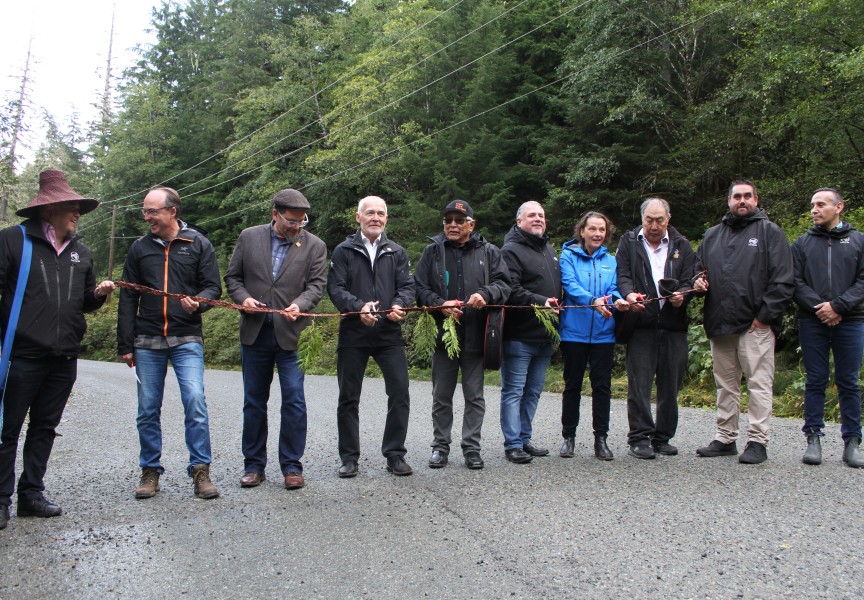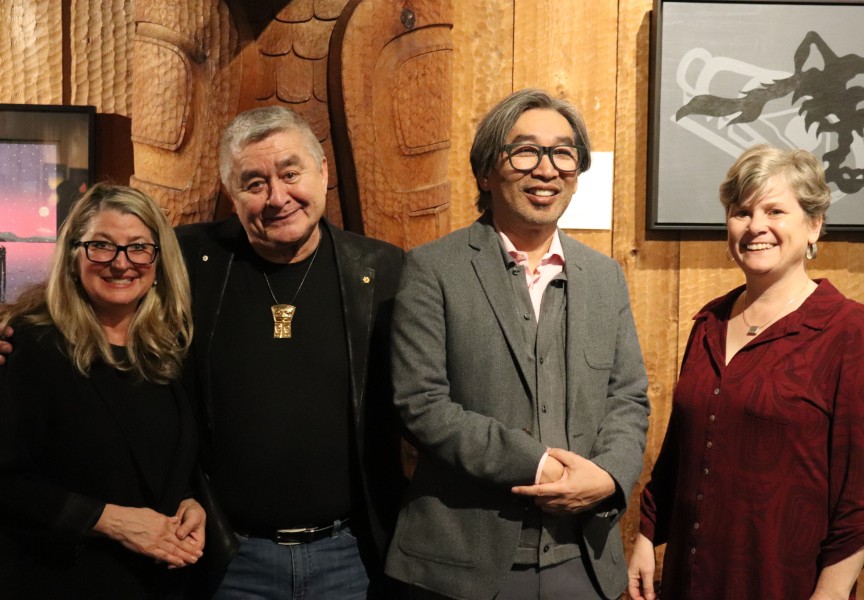The Federal Court of Canada has rejected a court challenge by Hupacasath First Nation against the pending Canada/China foreign investment treaty (FIPA), but the battle lines have shifted, according to the president of the Union of B.C. Indian Chiefs.
On Aug. 27, the court ruled that Hupacasath had failed to demonstrate how the agreement, signed in September 2012 but as yet not ratified, would result in damage to their Aboriginal rights. But Grand Chief Stewart Phillip believes the Hupacasath/FIPA fight has changed the way the Canadian public perceives First Nations and their relationship with the federal government.
“I’ve been involved in these issues for almost 40 years, and I’ve never seen this type of movement emerge,” he said. “In days gone by, it was First Nations standing alone, but nowadays we have such incredible support from a whole range of groups, including the general public.”
Former Hupacasath elected councillor Brenda Sayers has spearheaded the legal action, which was filed on Jan. 18. Specifically, the challenge was based on Ottawa’s failure to consult with First Nations as required under Section 35.2 of the Canadian Constitution. Sayers said news of the court’s rejection came as an anti-climax.
“I had just finished a conference call with all of our supporting organizations – about 20 in all. When I finished, I found that our lawyer had e-mailed me the decision. Naturally, I was quite surprised and disappointed with that decision.”
Sayers said her nation’s legal team will now explore any avenues for appeal, but it would require a vote of the Hupacasath chief and elected council to proceed.
In the meantime, there is a host of organizations in opposition to FIPA, but a new legal argument would be required to file a new court challenge.
Under FIPA, Chinese investors would have legal recourse to seek compensation for losses resulting from any federal, provincial or local government regulation enacted after the date of ratification.
Sayers pointed out that the Harper Government has “gutted” environmental protections under Bills C38 and C45, easing the way for Chinese investors seeking to exploit Canadian petroleum and mineral resources under weakened laws.
“We can already see the process at work under Chapter 11 of NAFTA [North American Free Trade Agreement]: Investor Arbitration,” Sayers said. “The Quebec government opposes fracking (hydraulic fracturing for natural gas), and so does the Quebec public, so now one U.S. company is preparing to launch a lawsuit on the basis that [a ban on fracking] will reduce their profits.”
In its Aug. 27 decision, the court ruled that any potential adverse impacts would be “non-appreciable and speculative in nature.” Sayers said that was one hazard in Hupacasath launching the legal action on its own.
The court was able to focus narrowly on one individual nation in order to set a sweeping legal precedent.
“We didn’t have time in our favour when we made the decision. Harper and his Cabinet could had ratified it any moment, so we made the decision, ‘Let’s proceed.’”
Prior to the launch, in late 2012, the Assembly of First Nations had voted to support any First Nation that took action, and Hupacasath had already started the process, she added.
“In retrospect, there was a very compelling sense of urgency,” Phillip said. “We just didn’t have time to organize a class action approach. We were deeply and gravely concerned that the government of Canada was going to approve this agreement any day. As I recall, the Harper Government refused to introduce it into the House for a full public debate.”
Phillip said with the Prime Minister having served notice of his intention to prorogue Parliament, FIPA may now be moving into uncharted territory.
“It is my understanding that when Parliament is prorogued, things do die on the Order paper.”
That means FIPA, which was passed but not formally ratified and adopted, technically remains in legislative limbo. The bill could be reintroduced in the next session, but does it constitute a new bill open to challenge on failure to consult?
“It is going to be interesting, and I suspect that there are many legal scholars on both sides of the fence who are contemplating these issues right now, in terms of what to do next,” Phillip said.
The Conservative government is currently embroiled in a number of controversies, led by the Senate expenses scandal, that have caused widespread erosion of its public support. Calling it “a government out of control,” Phillip said public opposition to FIPA is part of a growing trend that is making Stephen Harper reluctant to face full public debate in the House.
“The tide is beginning to turn against the Harper Government and pretty much everything it represents – the aggressive unilateralism, the omnibus legislation – there is such widespread opposition emerging, and it is growing day by day. The commonality, quite frankly, is Stop Harper.”
Sayers said by serving as a lightning rod in the anti-FIPA fight, Hupacasath has helped bring about a broad coalition of stakeholders.
“We have established strong and respectful relationships with numerous organizations – labour unions, environmental, religious and social justice groups – the spectrum is huge and we really worked hard to grow that huge.”
Now the goal is to keep the momentum building, Sayers said. Fortunately, that broad public support has been financial as well as moral.
“We did raise the funds to pay for the first stage of the court challenge through crowdfunding, and we will be looking to do the same for the appeal. What we have been saying is that this is something that affects all Canadians and we all have to pull together.”
“This is much bigger than FIPA,” Phillip said. “This is about the Harper Government and what it represents – the extremism and the unilateralism and the values it has brought forward into Canadian democracy. It flies in the face of democracy – ideals that this country has held and treasured for generations.”






